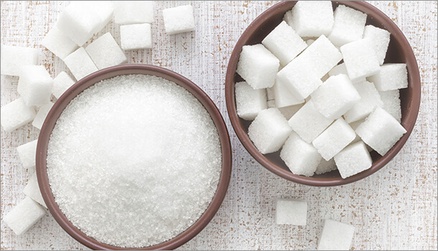We often talk about addiction to drugs, alcohol, tobacco, ... but rarely to sugar. However, it is real. It is also more insidious and causes just as much damage as other harmful substances, although the damage is obviously different.
Almost non-existent in the diet of most people until recently, sugar was consumed in France in 1850 at a rate of only 5 kg per year per person. Today, this figure has risen to 45 kg per person per year, or nearly 100 grams per day.

According to a recent study, refined sugar is more addictive than cocaine. This research done on rats showed that 94% of the rodents, who had the choice between sugar water and cocaine, chose...sugar! The little beasts were also working harder to get their sugar fix.
Another study, this time on humans, showed similar dependencies and effects. The purpose of this study was to measure the actions of sugar on the brain by having two milkshakes with similar taste and appearance, one with a higher glycemic index than the other. The "guinea pigs" were therefore separated into two groups, at random, without knowing which milkshake they were given. On the first day, one group receives a milkshake with a glycemic index of 34. A few days later, this same group received a glycemic index of 84. Neither the taste nor the texture changes. After a few hours, a blood test and a brain scan were performed: not surprisingly, the blood sugar level was very high, but the participants also complained of a feeling of hunger and a desire for sugar. The brain scan shows a strong activity in the region responsible for addictions, proof that the brain reaction will vary only according to the glycemic index.
But why are we addicted to this sweetness?
The researchers explain that this addiction is induced by the fact that we are born with a hypersensitivity to sugar. The receptors in our mouths are not adapted to high concentrations of artificial sugar. This stimulates our receptors in an abnormally excessive way, generating an oversized "reward" for our brain. It is this over-stimulation that short-circuits the control mechanisms and thus leads to addiction, as with all other drugs.
Sugars, flours, soft drinks and other prepared foods may make you hungrier and crave more sugar. The signs of sugar dependency are clear; they can take the form of untimely snacking without being hungry, eating larger quantities before reaching a feeling of satiety or even the "anxiety" of having to deprive oneself of certain foods.
Excessive sugar consumption is as toxic as alcohol abuse and contributes to the development of heart disease, diabetes and certain cancers. Like alcohol, sugar promotes high blood pressure, diabetes and heart risk, but also fatty liver overload.



